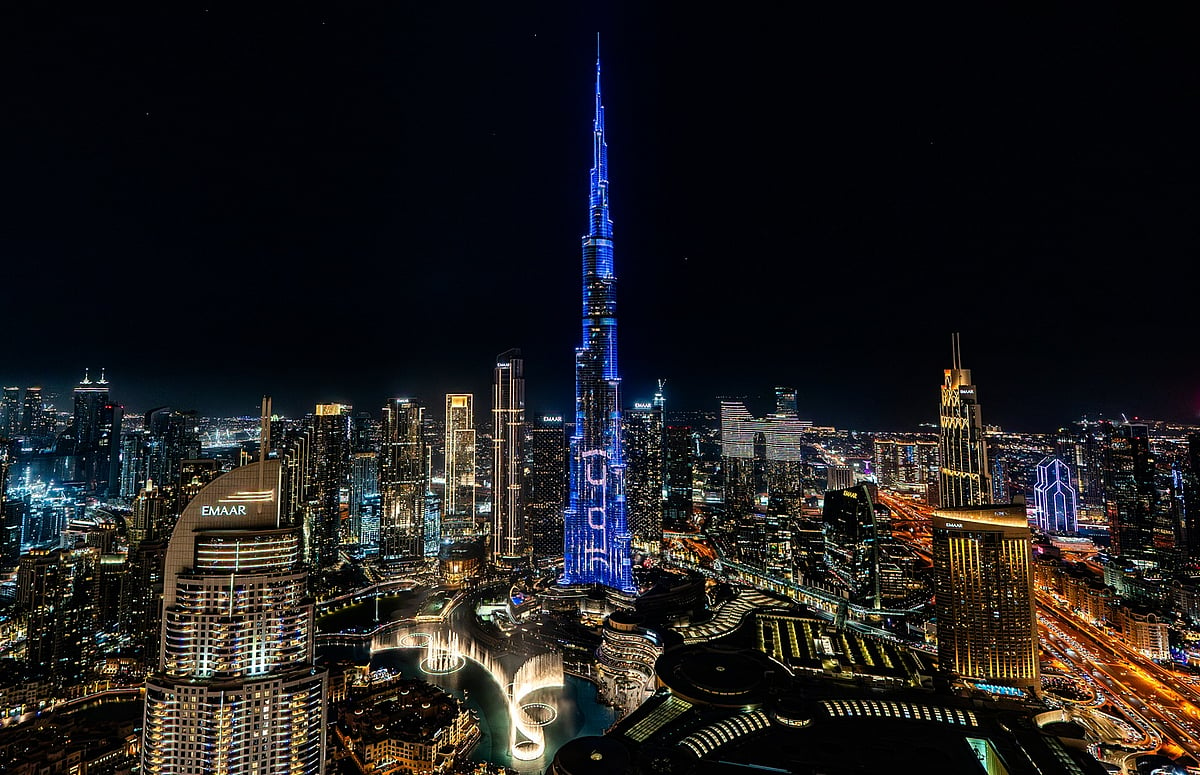Dubai: Emaar Properties PJSC reported Dh61 billion ($16.6 billion) in property sales for the first nine months of 2025, marking a 22% year-on-year increase. The company’s revenue backlog surged to Dh150.3 billion ($41 billion), up nearly 50% from the same period last year, reflecting strong demand and project momentum.
Key indicators:
Revenue: Dh33.1 billion ($9 billion), up 39% year-on-year
EBITDA: Dh16.6 billion ($4.5 billion), up 32%
Net profit before tax: Dh16.7 billion ($4.5 billion), up 35%
Emaar said the performance was driven by steady demand for new developments, strong recurring revenue streams, and disciplined financial management. Founder Mohamed Alabbar credited the UAE’s economic policies and Emaar’s strategic planning for the continued growth.
“Every achievement during this period is a result of understanding market dynamics, responding quickly, and staying ahead of expectations,” Alabbar said.
Property development
Emaar’s UAE-based projects, including Dubai Hills Estate, The Oasis, Rashid Yachts & Marina, Dubai Creek Harbour, and The Valley, continued to perform strongly. Property sales in the UAE reached Dh52.9 billion ($14.4 billion), a 10% rise from 2024.
The group’s UAE development backlog stood at Dh130 billion ($35.4 billion) as of September 30, 2025. Emaar also announced plans for Emaar Hills, a new ultra-luxury community adjacent to Dubai Hills Estate, featuring “Dubai Mansions” for high-end buyers.
International expansion
Emaar’s international operations saw property sales surge 331% to Dh8.1 billion ($2.2 billion), led by projects in Egypt and India. International revenue totaled Dh1.4 billion ($0.4 billion), about 4% of total group revenue.
Retail and hospitality indicators:
Shopping malls and retail: AED 4.7 billion (US$1.3 billion) in revenue, up 12%
Hospitality and leisure: AED 3 billion (US$0.8 billion), up 15%, with hotel occupancy averaging 72%
Recurring revenue portfolio: AED 7.7 billion (US$2.1 billion), contributing 35% of total EBITDA
Strategic outlook
Emaar highlighted its substantial land bank of 660 million sq. ft. globally, including 370 million sq. ft. in the UAE, supporting long-term expansion. The company also noted improved credit ratings — BBB+ (S&P Global) and Baa1 (Moody’s) — both with stable outlooks.
Emaar said it continues to prioritize sustainability and talent development, with upgrades to its MSCI ESG rating to ‘A’ and initiatives to nurture Emirati professionals.
The results reaffirm Emaar’s position as one of the UAE’s strongest listed developers, maintaining growth momentum across its property, retail, and hospitality segments through 2025.
Emaar Development strength
The company's subsidiary Emaar Development separately reported Dh52.9 billion ($14.4 billion) in property sales for the first nine months of 2025, up 10% year-on-year, with net profit before tax rising 49% to Dh9.8 billion ($2.7 billion).
Revenue grew 41% to Dh17.6 billion ($4.8 billion), while the revenue backlog increased 44% to Dh120.4 billion (US$32.8 billion), underscoring strong project demand and future revenue visibility. EBITDA climbed 49% to Dh8.9 billion ($2.4 billion), maintaining a robust 51% margin.
The results were supported by 33 new project launches across master developments and strong market demand, further strengthening Emaar’s leadership in the UAE’s property sector.
Emaar also unveiled its new Dubai Mansions project, adding to its portfolio of high-end communities and reinforcing its commitment to sustainable, high-quality urban living.
Sign up for the Daily Briefing
Get the latest news and updates straight to your inbox
Network Links
GN StoreDownload our app
© Al Nisr Publishing LLC 2026. All rights reserved.

